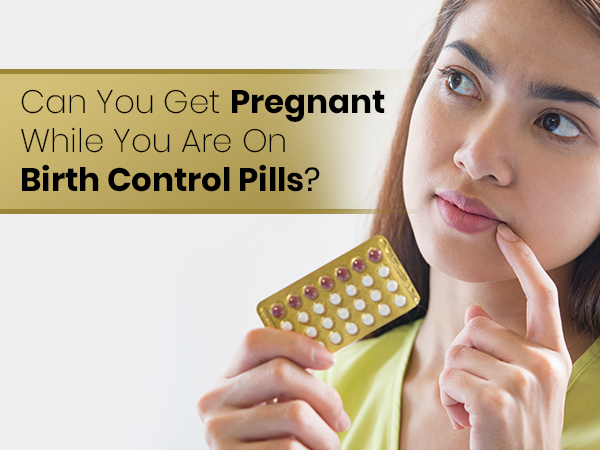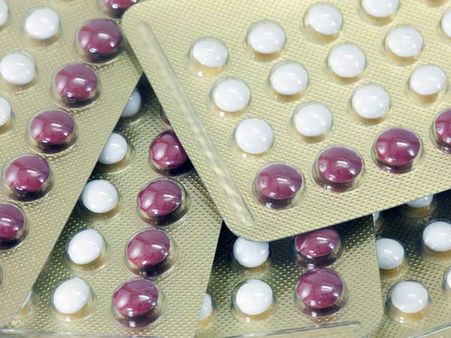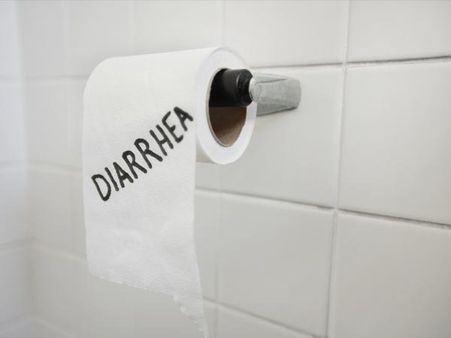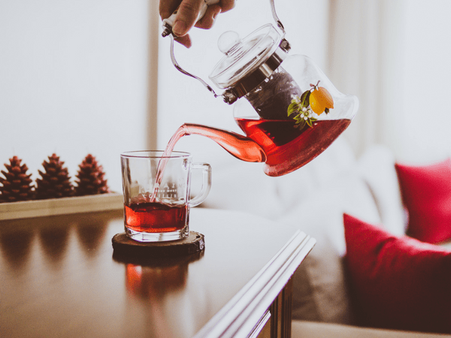Just In
- 1 hr ago

- 5 hrs ago

- 9 hrs ago

- 9 hrs ago

Don't Miss
- News
 Lok Sabha Election 2024: Polling Begins For Five LS Seats In Maharashtra
Lok Sabha Election 2024: Polling Begins For Five LS Seats In Maharashtra - Movies
 Divyanka Tripathi Accident: Vivek Dahiya Reveals Actress Has Broken Two Bones; To Undergo Surgery Today
Divyanka Tripathi Accident: Vivek Dahiya Reveals Actress Has Broken Two Bones; To Undergo Surgery Today - Finance
 Adani Ports: Why Adani Group's Cash-Cow Stock Falls Amid Israel-Iran Conflict? Explained!
Adani Ports: Why Adani Group's Cash-Cow Stock Falls Amid Israel-Iran Conflict? Explained! - Technology
 TSMC's Global Expansion Could Drive Up Chip Costs, Making Tech More Expensive
TSMC's Global Expansion Could Drive Up Chip Costs, Making Tech More Expensive - Automobiles
 Suzuki Motorcycle India Achieves Production of Over 8 Million Two-Wheelers
Suzuki Motorcycle India Achieves Production of Over 8 Million Two-Wheelers - Sports
 IPL 2024: 'It was his idea only' - Rinku Singh reveals Gautam Gambhir's masterstroke with Sunil Narine move
IPL 2024: 'It was his idea only' - Rinku Singh reveals Gautam Gambhir's masterstroke with Sunil Narine move - Education
 Karnataka SSLC Result 2024 Soon, Know How to Check Through Website, SMS and Digilocker
Karnataka SSLC Result 2024 Soon, Know How to Check Through Website, SMS and Digilocker - Travel
Telangana's Waterfall: A Serene Escape Into Nature's Marvels
Can You Get Pregnant While On Birth Control Pills?
Birth control pills are considered a safe and effective method to prevent pregnancy. They are about 99% effective when you take them the right way, and if you don't, the chances of getting pregnant goes up to 9%. This article will talk about whether you can get pregnant while on birth control pills.
Birth control pills are of two types: combined pills and mini pills. Combined pills contain two hormones, oestrogen and progestin and mini pills contain only the progestin hormone [1], [2]. Both these oral contraceptive pills have a failure rate of 9%.

A study has shown that oral contraceptive pills not only prevent pregnancy but also lowers the risk of ovarian and endometrial cancer and protects against acute pelvic inflammatory disease and ectopic pregnancies [3].
Despite the pills being effective, missing your daily dose increases the chances of getting pregnant. There are other causes behind the failure of birth control pills which might increase the chances of pregnancy. Let's read on.
Causes Of Getting Pregnant On Birth Control Pills

1. Irregular timing
If you aren't taking your pills at the same time every day, it elevates the risk of getting pregnant. This means you have to have your birth control pills at the exact same time daily for it to be effective. Oral contraceptive pills are designed to maintain the level of hormones in the body, so if you skip a dose it causes a drop in hormone levels [4].

2. Track your menstrual cycle
You should take your pills depending on where you are in your menstrual cycle, For example, if your periods just got over and you take the pill then it will stop ovulation, and if you are in the middle of your periods and you start taking the pill, you are at a risk of getting pregnant. In this case, you should use a backup contraceptive method like a condom for at least seven days [5].

3. Improper storage
Birth control pills should be stored in a cool, dry place as extreme heat can reduce the effectiveness of the contraceptive. Contraceptive pills should be stored at a room temperature of 25 degree Celsius [6].

4. Diarrhoea and vomiting
If you have been suffering from diarrhoea and constant vomiting and you take the contraceptive pills within two hours of falling sick, it will not get absorbed by the body. Diarrhoea interferes with the absorption and lowers the effectiveness of birth control pills [7].

5. Intake of other herbal medications
If you consume St. John's Wort supplement and birth control pills at the same time, it may reduce the pill's effectiveness. Consult a doctor if you are taking this herb and use a backup contraceptive method to avoid pregnancy [8].
Other medications can also affect the efficacy of birth control pills, these include epilepsy medicines, HIV medicines, mood stabilizers and rifampin, an antibiotic medicine.

6. Increased alcohol consumption
Drinking alcohol excessively can also interfere with the effectiveness of birth control pills; and also, under the influence of alcohol, women might miss their daily dose. This can lead to a drop in hormone levels and increase the risk of pregnancy [9].

7. Detox teas and laxatives
Detox teas and laxatives flush out the toxins and water from the body. So, if you are on laxatives or drinking detox tea, it can affect the effectiveness of birth control pills. The body is unable to absorb the pill and this will lower its protection towards pregnancy.
To Conclude...
If you are opting for birth control pills, speak to your doctor before taking it as he or she will guide you as to how to take it and which type of pill is right for you.
-
 pregnancy parentingHow Long Should You Wait After A Miscarriage To Conceive? Is It Different For Abortion?
pregnancy parentingHow Long Should You Wait After A Miscarriage To Conceive? Is It Different For Abortion? -
 pregnancy parentingExpert Article: 10 IUI Success Tips to Improve the Chances of Becoming Pregnant
pregnancy parentingExpert Article: 10 IUI Success Tips to Improve the Chances of Becoming Pregnant -
 pregnancy parentingMyths vs Facts: Can You Get Pregnant While Breastfeeding?
pregnancy parentingMyths vs Facts: Can You Get Pregnant While Breastfeeding? -
 pregnancy parentingMyths vs Facts: Breastfeeding Should Hurt At The Beginning For Every Woman
pregnancy parentingMyths vs Facts: Breastfeeding Should Hurt At The Beginning For Every Woman -
 pregnancy parentingMyths vs Facts: Can You Get Pregnant If There’s Semen Near The Vagina
pregnancy parentingMyths vs Facts: Can You Get Pregnant If There’s Semen Near The Vagina -
 pregnancy parentingMyths vs Facts: Back Sleeping During Pregnancy Is Harmful To The Baby
pregnancy parentingMyths vs Facts: Back Sleeping During Pregnancy Is Harmful To The Baby -
 pregnancy parentingMyths vs Facts: Rubbing Your Pregnancy Tummy Is Bad Luck
pregnancy parentingMyths vs Facts: Rubbing Your Pregnancy Tummy Is Bad Luck -
 pregnancy parentingTeenage Pregnancy: The Effect On Babies Mentally, Emotionally, Socially And Physically
pregnancy parentingTeenage Pregnancy: The Effect On Babies Mentally, Emotionally, Socially And Physically -
 pregnancy parentingWorld Preeclampsia Day: Early Warning Signs Pregnant Women Should Know
pregnancy parentingWorld Preeclampsia Day: Early Warning Signs Pregnant Women Should Know -
 pregnancy parentingSummer Health Risks For Pregnant Women: 5 Things To Look Out For
pregnancy parentingSummer Health Risks For Pregnant Women: 5 Things To Look Out For -
 pregnancy parentingHot Weather And High Body Temperature During Pregnancy: Tips To Avoid Overheating
pregnancy parentingHot Weather And High Body Temperature During Pregnancy: Tips To Avoid Overheating -
 pregnancy parentingIs It Safe To Use Nail Polish While Pregnant? What Are The Risks?
pregnancy parentingIs It Safe To Use Nail Polish While Pregnant? What Are The Risks?


 Click it and Unblock the Notifications
Click it and Unblock the Notifications



